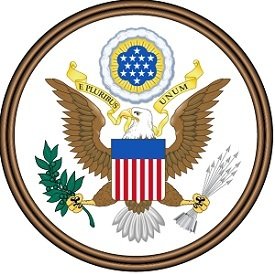
Knowingly making a false claim to a government agency is a crime under federal law. A conviction carries definite prison time and a fine.
On this page, our Las Vegas criminal defense attorneys provide a summary of the federal “criminal false claims act” in Nevada. Scroll down for the definition of this crime, how to defend against charges of it, and possible penalties.
Definition
It is a federal offense to knowingly present a false, fictitious or fraudulent claim to any department or agency of the United States. A typical example is trying to get government benefits when the claimant knows that he/she is ineligible.
Example: Jeff from Reno applies for Medicaid even though he secretly keeps an offshore account with thousands of dollars. If Jeff is caught, U.S. Marshals Service could book Jeff at the Washoe County Detention Center for presenting a false claim to the government.
The most important element to the “criminal false claims act” is that the defendant “knowingly” makes a false claim. This law is not meant to punish accidents or mistakes.
Example: Tom lives in Henderson and is approaching 65. When he applies for Medicare, he discloses incorrect personal information due to a clerical error. If caught, he may initially be arrested and taken to the Henderson Detention Center for making a false claim. But as long the prosecution cannot prove that Tom knowingly presented wrong information, he should not be convicted.
Therefore, the purpose of the “false criminal claims act” is to protect the U.S. government from people who try to cheat it out of undeserved benefits. People who are simply neglectful when presenting a false claim should not be convicted under this crime.
Defenses
Two key defenses exist for fighting allegations of the federal crime of presenting the government with false, fictitious or fraudulent claims: 1) There were no false claims, and 2) The defendant had no intent to defraud.
- There was no intent to defraud. Judges realize that the process of making a claim can be very confusing, and that claimants make honest mistakes all the time. As long as the U.S. Attorney’s Office cannot prove beyond a reasonable doubt that the defendant’s false claims were knowingly made, then he/she should not be held criminally liable.
- There were no false claims. In large bureaucracies like the U.S. government, it is not uncommon for government employees to inadvertently make bookkeeping errors that lay blame on the claimant. If the defense attorney can show that the defendant’s claims were true and correct, then the charges should be dismissed.
Another common defense is that the police acted unconstitutionally when investigating the case. In these circumstances, a defense attorney would file a “motion to suppress evidence” which asks the court to disregard all evidence found from unlawful police activity such as an illegal search. If the court agrees with the motion, the prosecution may be left with insufficient evidence to sustain a conviction.

Penalties
The punishment in Nevada for presenting false, fictitious or fraudulent claims to the government is a sentence of up to five (5) years in Federal Prison and a fine.
Note that only the Lloyd D. George Federal Courthouse in Las Vegas and the Bruce R. Thompson Federal Courthouse in Reno hear federal cases.
Arrested? Call . . . .
If you are facing charges in Nevada federal court for “presenting false, fictitious or fraudulent claims to the government,” call our Las Vegas Federal Crimes Lawyer. We will do our best to work out the most favorable resolution available for your matter.

